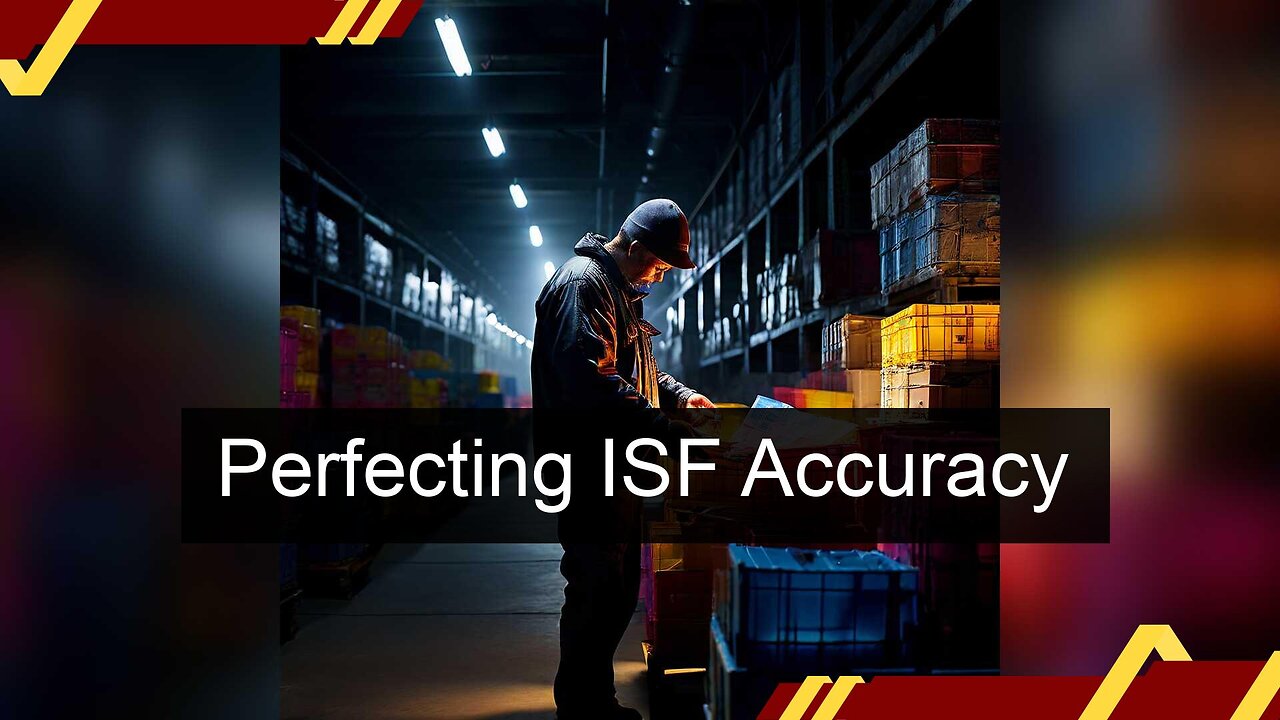Premium Only Content

Mastering Data Accuracy: Best Practices for ISF Filing in Customs Brokerage
License To Import // 323-578-6432 // file@licensetoimport.com // www.licensetoimport.com
In this video, we discussed best practices for ensuring data accuracy in the Importer Security Filing (ISF) process. Accuracy is crucial in the ISF filing to avoid delays, penalties, and potential loss of goods. We highlighted several strategies to achieve data accuracy in the ISF process.
First and foremost, it is essential to review and double-check all the information provided in the ISF form, including the importer's and seller's details. Any errors or inconsistencies can lead to significant delays and fines. Maintaining detailed records of all imported goods is also important. Having a logbook or electronic record will ensure accurate data entry in the ISF process.
Using advanced technology and software solutions can greatly improve the accuracy of ISF filing. Automated systems can minimize human error and ensure timely submission of required data. There are various customs brokerage software available that can streamline the ISF process and increase overall efficiency.
Data validation plays a crucial role in ensuring accuracy. Implementing validation rules in your system can help identify errors or missing information in the data. These rules can be customized based on specific requirements and provide real-time notifications for prompt rectification.
Collaboration and communication among supply chain stakeholders are vital. Consistently liaising with suppliers, freight forwarders, and customs brokers will ensure that all required information for ISF filing is accurate and up to date. Regular communication helps address any potential discrepancies or changes during the shipment process.
Performing periodic audits and self-assessments is an effective way to identify gaps and areas for improvement. Internal reviews enable proactive measures to address potential issues before they lead to non-compliance or penalties.
Staying updated with the latest regulations and changes in the ISF process is crucial. Importers need to stay informed and adapt their practices accordingly. Subscribing to industry newsletters, attending trade seminars, and engaging with customs experts provide valuable insights and ensure compliance with current requirements.
Understanding and implementing these best practices for data accuracy in the ISF process will greatly contribute to successful customs brokerage operations. Thank you for watching, and don't forget to subscribe to our channel for more valuable insights on customs brokerage and international trade.
#usimportbond #isfcustomsbroker #uscustomsclearing #isfentry
Video Disclaimer Here: This video is solely for education and is not endorsed by any US government agency.
00:30 Accuracy is crucial in the Importer Security Filing (ISF) process to avoid delays
01:09 Maintaining accurate ISF data involves reviewing and verifying importer
02:58 Stay informed about ISF regulations, conduct regular audits for process improvement
-
 2:46:06
2:46:06
DDayCobra
7 hours ago $13.60 earnedCobraCast 199
50.3K4 -
 2:07:27
2:07:27
TheSaltyCracker
7 hours agoTrump Tower Bombed w/ Cybertruck ReeEEeE Stream 01-01-25
148K280 -
 8:15:58
8:15:58
FreshandFit
14 hours agoElon Musk BETRAYAL & Mass Censorship On X
197K81 -
 2:25:43
2:25:43
Darkhorse Podcast
14 hours agoLooking Back and Looking Forward: The 258 Evolutionary Lens with Bret Weinstein and Heather Heying
156K209 -
 5:50:16
5:50:16
Pepkilla
13 hours agoRanked Warzone ~ Are we getting to platinum today or waaa
105K7 -
 9:15:09
9:15:09
BrancoFXDC
11 hours ago $8.93 earnedHAPPY NEW YEARS - Road to Platinum - Ranked Warzone
92.7K4 -
 5:53
5:53
SLS - Street League Skateboarding
5 days agoBraden Hoban’s San Diego Roots & Hometown Win | Kona Big Wave “Beyond The Ride” Part 2
99.9K13 -
 6:03:57
6:03:57
TheBedBug
16 hours ago🔴 LIVE: EPIC CROSSOVER - PATH OF EXILE 2 x MARVEL RIVALS
100K9 -
 1:12:45
1:12:45
The Quartering
14 hours agoTerror In New Orleans, Attacker Unmasked, Tesla BLOWS UP At Trump Tower! Are We Under Attack?
163K261 -
 1:32:08
1:32:08
Robert Gouveia
15 hours agoNew Year TERROR; Trump Speaks at Mar-a-Lago; Speaker Johnson FIGHT
134K112